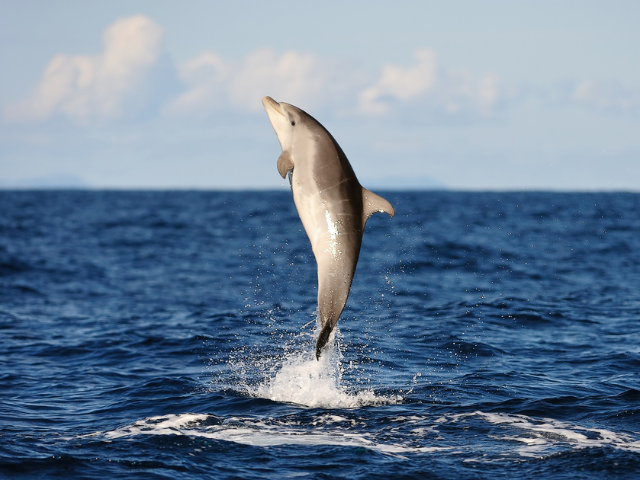Sea Life on the Costa Del Sol

Think Costa del Sol,and you’re likely to think ‘fish’.This region of the med is famous for its diverse marine life. The warm, nutrient-rich waters of the Mediterranean Sea support a wide variety of sea creatures, making the Costa del Sol a fascinating destination for marine enthusiasts.
Fish Species
The waters off the Costa del Sol are home to numerous fish species, many of which are commonly found in Mediterranean cuisine. Some of the most notable fish include:
- Sardines: One of the region’s most iconic fish, sardines are often served grilled on skewers at beachside "chiringuitos" (beach bars). They thrive in the Mediterranean waters and are a staple in the local diet.
- Sea Bream and Sea Bass: These are among the most prized fish in the Mediterranean. Both are commonly found in restaurants along the coast, often grilled or baked.
- Mackerel: Known for its rich flavour and oily goodness, mackerel is another common species in the Costa del Sol’s waters, often enjoyed grilled or as part of traditional dishes.
- Gilt-Head Bream: This species is popular among local fishermen and is valued for its tender, flavourful meat.
Marine Mammals
The Costa del Sol’s waters are often visited by marine mammals, particularly dolphins. Several species of dolphins can be seen here, including:
- Common Dolphin: Known for their playful nature, common dolphins are frequently spotted in the waters off the coast, often following boats and delighting onlookers with their acrobatics.
- Bottlenose Dolphin: These larger dolphins are also a familiar sight, especially around the Strait of Gibraltar, where they sometimes interact with boats.
While less common, there have been occasional sightings of *whales*, particularly pilot whales and even orcas, in the deeper waters near the Strait of Gibraltar, which lies just to the west of the Costa del Sol.
Invertebrates
The Costa del Sol’s marine environment also supports a variety of invertebrates, many of which are essential to the local ecosystem and culinary traditions:
- Octopus: Octopus is a popular ingredient in local dishes, particularly in "pulpo a la gallega" (Galician-style octopus). These creatures are commonly found in the rocky areas along the coast.
- Cuttlefish: Another cephalopod, cuttlefish, is often used in regional cuisine, particularly in dishes like "arroz negro" (black rice).
- Squid: Squid are abundant in the area and are a key ingredient in many local recipes, including "calamares fritos" (fried squid).
- *Crustaceans*: The Costa del Sol is home to a variety of crustaceans, including prawns, lobsters, and crabs. These species are highly valued and frequently featured in seafood dishes.
Sea Turtles
Although rare, the Costa del Sol occasionally sees visits from sea turtles, particularly the *Loggerhead Turtle*. These turtles are usually spotted during their migratory journeys and sometimes nest on the beaches, though this is a rare occurrence. Conservation efforts are in place to protect these turtles when they are found.
Marine Flora
The underwater landscape of the Costa del Sol is also rich in marine plants and algae, which provide essential habitats for many sea creatures. *Posidonia oceanica*, a seagrass species endemic to the Mediterranean, is particularly important. These underwater meadows serve as breeding grounds for fish and invertebrates and help maintain water quality.
Conservation Efforts
Due to the richness of its marine life, there are ongoing conservation efforts in the Costa del Sol to protect these species and their habitats. Marine reserves, pollution control measures, and sustainable fishing practices are all part of the efforts to ensure that this vibrant ecosystem remains healthy for future generations.
Whether you’re a snorkeler, diver, or simply a lover of seafood, the Costa del Sol offers a fascinating glimpse into the diverse sea life that thrives along this beautiful stretch of the Mediterranean coast.
CONTACT DETAILS:
